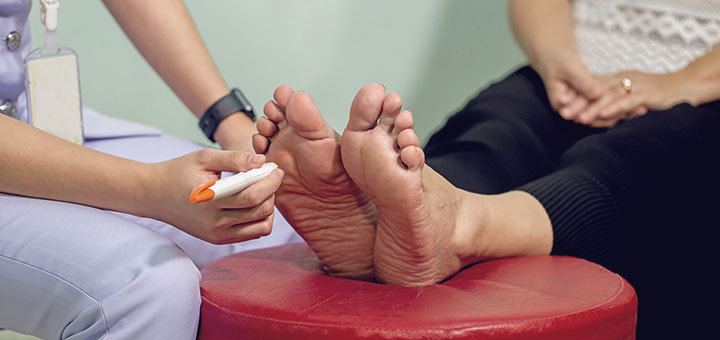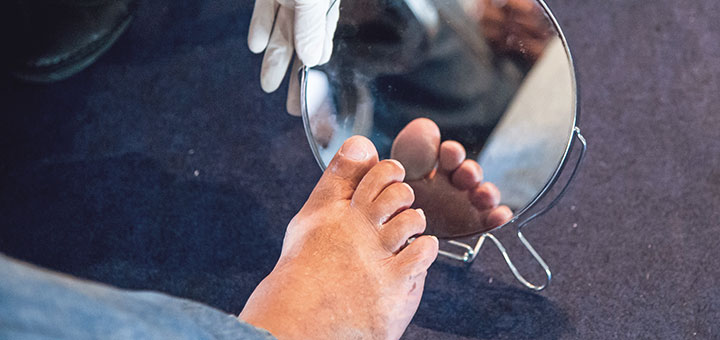Foot Health: Prevent Diabetes Problems
Custom Orthotics | orthoticsnearme.com
Prevent foot injuries by wearing shoes that fit well and have good support. Don’t walk barefoot. Check your shoes, before putting them on, for small pebbles, warn areas or rough spots. Avoid sandals, pointed toes, high heels, and plastic shoes. Always wear seamless socks in your shoes.

It is important to check your feet every evening for cuts, sores, red spots, blisters, swelling or infected toe nails. If you have any of these problems, and they do not heal within twenty-four hours, it is important to contact your foot care professional or a family doctor. If you have trouble seeing the bottom of your feet, try using a mirror.
Clean your feet daily, using warm water and a mild soap. Before bathing or showering, test the water to make sure it is not too hot by using a thermometer or your elbow. If you use a thermometer, the temperature between 32 and 35 degrees Celsius (90-95 degrees Fahrenheit) is safe. Water that is too hot can damage the skin. Do not soak your feet as they can become dry and cracked, causing infection. Be sure to dry your feet well, using a patting rather than a rubbing motion. Be careful to dry between your toes and use talcum powder or corn starch to keep the skin between your toes dry. Apply lotion to the top and bottom of your feet to keep them soft. Do not apply lotion between the toes as this can cause the area to become too moist.
Thick or hardening of the skin on the toes and bottom of the feet called corns or calluses can appear from skin rubbing against bony areas of the foot. If you have corns or calluses, it is important to talk to a foot care professional about how to remove them. Do not use corn plasters, corn and callus removers or blades, as these may lead to infections. Trim your toenails straight across once a week. Smooth sharp edges with emery board or nail file. Contact your foot care doctor, if your nails become thick or yellowed or begin to curve and grow into the skin.

Avoid using heating pads, hot water bottles or camp fires to warm your feet and carefully check your feet during cold temperatures for frost bite.
Keeping your blood glucose levels in your target range through healthy eating and daily exercise can prevent or decrease nerve damage caused by diabetes. Daily foot care comfortable shoes and having your family doctor or foot care specialist examine your feet at least once a year can help minimize serious long-term damage caused by diabetic neuropathy.